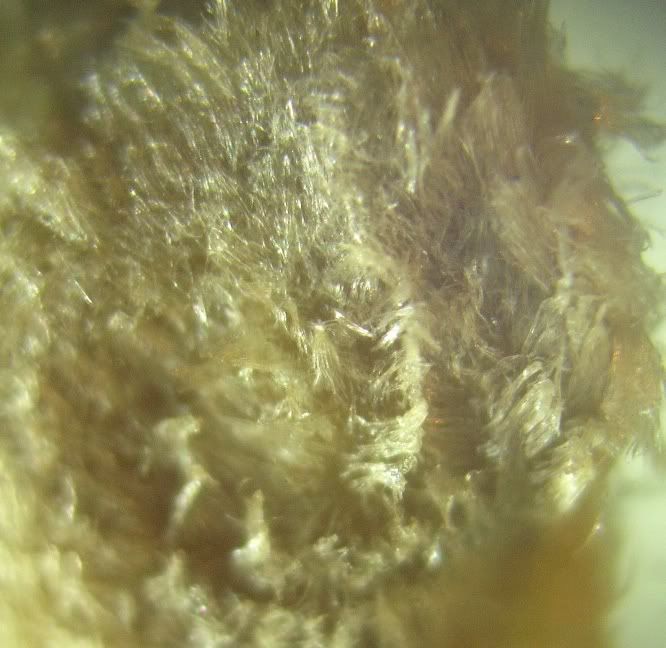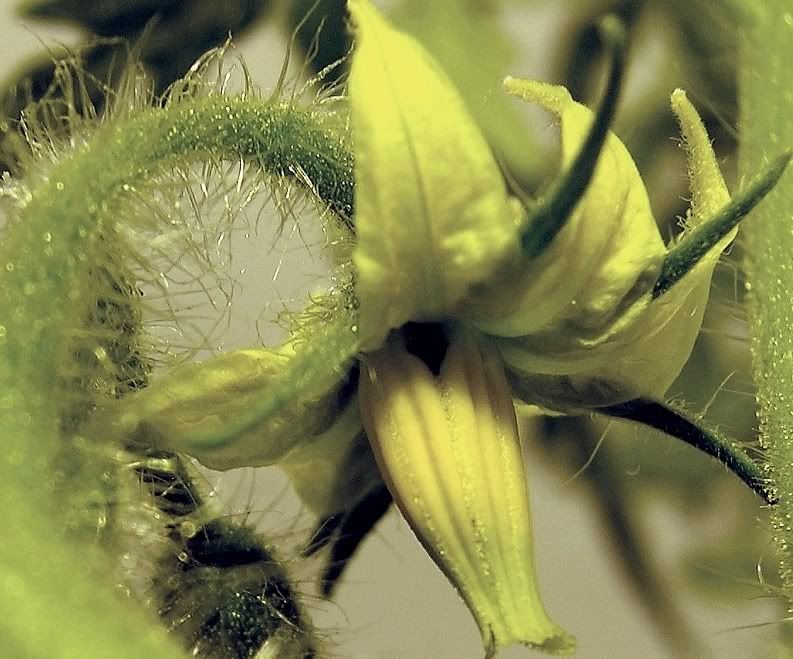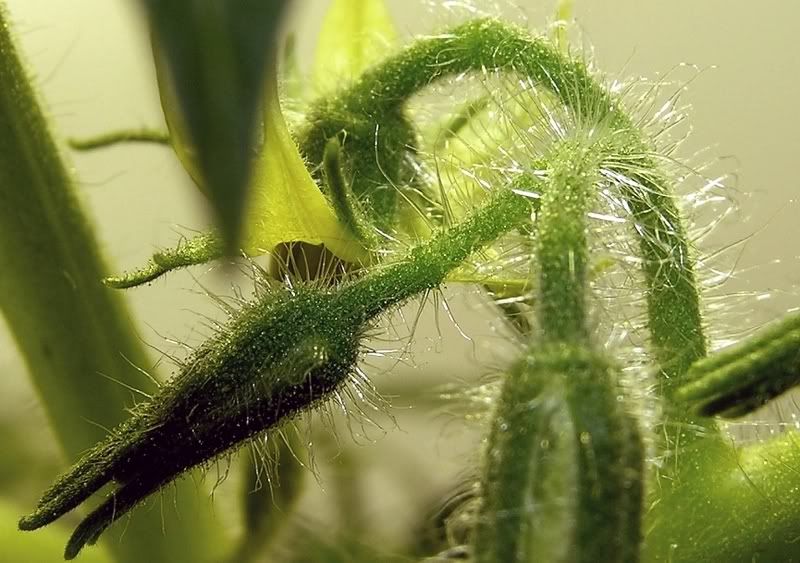

|
Member discussion regarding the methods, varieties and merits of growing tomatoes.
|
 |
|
|
Thread Tools | Display Modes |
|
|
|
|
#1 |
|
Tomatovillian™
Join Date: Nov 2006
Location: Log Cabin, Louisiana, moving to Mansfield, Missouri, winter 2006-7
Posts: 30
|
I realize that people with a wide variety of experience come to this forum--from scientists/experts all the way down to ME. If you please, I need a non-technical answer to what might be a technical question.
Let's say that I approach you with a tomato. Maybe I found it growing out in the woods, but have absolutely no information about it. How can it be determined whether it is a new variety? I suppose someone may have devised one of those (what'd we call 'em?)...dichotomous keys (?) that might begin: 1. Does it have regular-leaf foliage? a. Yes. Go to #3. b. No. Go to #2. 2. Does it have potato-leaf foliage? a. Yes. Go to #4. b. No. Go to #5. It seems to me, however, that there are only a limited number of obvious physical characteristics to a tomato. After all, it's just a tomato, right??? After you've classified it by foliage, shape, color, size, etc., you still haven't winnowed it down to an exact variety. How many named varieties are there? Thousands, surely, not to mention un-named types. So.... Is there some sort of DNA bank, or genetic marker, whereby microscopic characteristics can be compared to some standard? How does this process work? |
|
|

|
|
|
#2 |
|
Moderator Emeritus
Join Date: Jan 2006
Location: Upstate NY, zone 4b/5a
Posts: 21,169
|
Is there some sort of DNA bank, or genetic marker, whereby microscopic characteristics can be compared to some standard? How does this process work?
George, I think the first thing to realize is that there are close to about 12,000 OP varieties known. Finding a plant growing somewhere there's absolutely no way of knowing what it might be, whether a true OP variety, seed spread by birds, perhaps, or the result of a X pollination. There are no gene sequence analyses done for most of the OP's that we as gardeners grow. Some OP's that are used in the development of hybrids would have more DNA sequence information known. There are no specific markers that can ID our garden varieties as to specific variety. Almost all family heirlooms are orphans and thus are owned by no one and thus no one can put up the money for DNA sequencing. And the same is true for determing tolerance to specific diseases, that is, that costs money and they are orphans. And you don't know if that plant you find growing already had a name and now you don't know it, and rename it. but you still couldn't ID it to variety. There are no doubt quite a few varieties listed in the SSE Yearbooks that once had a specific variety name that was lost, and then the variety was renamed. I can't tell you how many times someone will come to a message site and show a picture or describe what they see and ask what variety it is. With few exceptions, it's absolutely impossible to know.
__________________
Carolyn |
|
|

|
|
|
#3 |
|
Tomatovillian™
Join Date: Nov 2006
Location: Log Cabin, Louisiana, moving to Mansfield, Missouri, winter 2006-7
Posts: 30
|
Thanks for the answer. I guess I was expecting that there was some sort of "magic identifier process" that could be used to differentiate.
If I understand correctly, of all the thousands of varieties shown in the SSE yearbook, many of them may actually be identical to at least one other variety--just with a "new" name. |
|
|

|
|
|
#4 |
|
Tomatovillian™
Join Date: May 2006
Location: Rock Hill, SC
Posts: 5,346
|
Definitely a safe assumption.
Many of the various Brandywine "strains" were found to be the same or close to it when grown side-by-side.
__________________
[SIZE="3"]I've relaunched my gardening website -- [B]TheUnconventionalTomato.com[/B][/SIZE] * [I][SIZE="1"]*I'm not allowed to post weblinks so you'll have to copy-paste it manually.[/SIZE][/I] |
|
|

|
|
|
#5 |
|
Tomatovillian™
Join Date: Jun 2006
Location: NY
Posts: 2,618
|
No. Not Donald Trump's hair.
 Closeup view of tomato seeds.  I wonder if there are differences in tomato seeds which might help ID varieties.  dcarch
__________________
tomatomatomatomatomatomatomatomatomatomatomatomato matomato tomatomatomatomatomatomatomatomatomatomatomatomato matomato tomatomatomatomatomatomatomatomatomatomatomatomato matomato |
|
|

|
|
|
#6 |
|
Tomatovillian™
Join Date: Sep 2006
Location: Butte, MT
Posts: 811
|
Great clseup DCARCH
|
|
|

|
|
|
#7 |
|
Tomatovillian™
Join Date: Jan 2006
Location: UK.
Posts: 960
|
those are the hairiest tomato seeds I have ever seen before- I bet you brushed them up into a D.A. or a Tony Curtis, before taking the shots

|
|
|

|
|
|
#8 |
|
Tomatovillian™
Join Date: Sep 2006
Location: Hawaii
Posts: 5
|
Just out of curiosity, does anyone know if tomato flower types have been categorized?
|
|
|

|
|
|
#9 | |
|
Tomatovillian™
Join Date: Jun 2006
Location: NY
Posts: 2,618
|
Quote:
dcarch  
__________________
tomatomatomatomatomatomatomatomatomatomatomatomato matomato tomatomatomatomatomatomatomatomatomatomatomatomato matomato tomatomatomatomatomatomatomatomatomatomatomatomato matomato |
|
|
|

|
|
|
#10 |
|
Tomatovillian™
Join Date: Sep 2006
Location: Butte, MT
Posts: 811
|
Nice Macro
|
|
|

|
|
|
#11 |
|
Tomatovillian™
Join Date: Nov 2006
Location: Log Cabin, Louisiana, moving to Mansfield, Missouri, winter 2006-7
Posts: 30
|
What great pics!!
|
|
|

|
 |
| Thread Tools | |
| Display Modes | |
|
|
